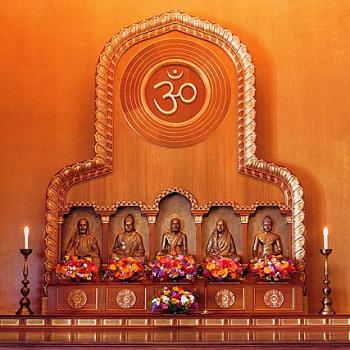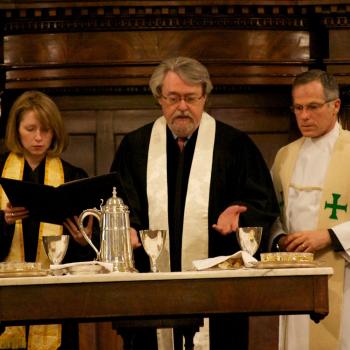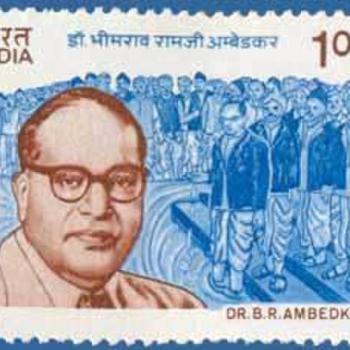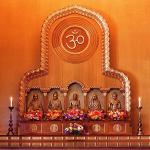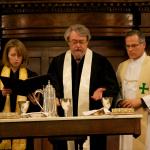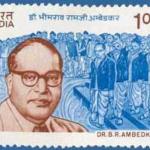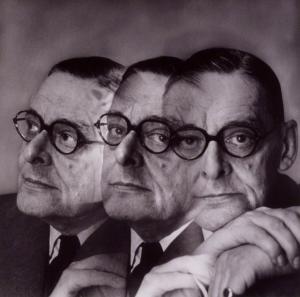
(I wrote this in 2018, and stumbled on it while searching for references to Ash Wednesday. With the most minor of tweaks, I thought it worth sharing here again…)
We shall not cease from exploration
And the end of all our exploring
Will be to arrive where we started
And know the place for the first time.
Through the unknown, unremembered gate
When the last of earth left to discover
Is that which was the beginning;
At the source of the longest river
The voice of the hidden waterfall
And the children in the apple-tree
Not known, because not looked for
But heard, half-heard, in the stillness
Between two waves of the sea.
Quick now, here, now, always—
A condition of complete simplicity
(Costing not less than everything)
And all shall be well and
All manner of thing shall be well
When the tongues of flame are in-folded
Into the crowned knot of fire
And the fire and the rose are one.
T. S. Eliot “Little Gidding”
In my formative years “J. Alfred Prufrock” caught my imagination. The “Wasteland” gave voice to my anxieties. “Ash Wednesday,” the plays Murder in the Cathedral and The Cocktail Party, and most of all the “Four Quartets” informed and gave images as well as turns of phrase to my developing spirituality.
Raised Unitarian, after a brief flirtation with Buddhism, he embraced Anglicanism’s spiritual comprehensiveness. His unlikely journey from America to England also hints volumes at the mutability of our lives both as individuals and where we’re going. That going, I believe, is leading irresistibly toward the universal longing.
If anyone can claim to come from Unitarian aristocracy, it would be Thomas Stearns Eliot. His great grandfather William Greenleaf Eliot, Sr, was one of the founders of the Unitarian church in Washington D. C. His grandfather William Greenleaf Eliot Jr, was the founding minister of the Unitarian church in St. Louis, where he would also be a founder of Washington University. One of his uncles, Thomas Lamb Eliot would be the founding minister of the Unitarian church in Portland, Oregon. While his cousin Frederick May Eliot would become president of the American Unitarian Association. At least one UU church is named for this family.
His father was not clergy, although the family were active members of the church that his father’s father founded. T. S. Eliot was born in St Louis on the 26th of September 1888. His father was a successful businessman. His mother a former schoolteacher, intellectual and poet. Eventually he would attend Harvard College, where incidentally his third cousin William Eliot was president.
My colleague the Reverend Roger Fritts wrote a substantive biographical sermon about Eliot, to which I owe a considerable debt for this small reflection. In addition Roger succinctly describes the early twentieth century version of the faith into which Eliot was born and raised. “Unitarians (at that time) believed that human life was on the verge of great advances in which science, reason, education and democracy were going to eliminate poverty, hunger, war and sickness. There was little talk of sin or tragedy or evil. There was much talk of progress, efficiency and well-being.”
There was also lots of attention to moral cultivation. As Roger points out the young Eliot “was taught to keep his feelings to himself, to remain rational, orderly, and self-contained.” While obviously admirable traits, this personal reticence also had terrible shadows. As an adult Eliot famously could not bring himself to buy candy, feeling it an “example of needless self-gratification.”
After earning an undergraduate degree as well as a master’s in English Literature at Harvard, all within four years, Eliot decamped for Europe. Here he wrote his first famous poem, “The Love Song of J. Alfred Prufrock.” A sample.
Do I dare
Disturb the Universe?
In a minute there is time
For decisions and revisions which a minute will reverse.
For I have known them all already, known them all –
Have known the evenings, mornings, afternoons,
I have measured out my life with coffee spoons;…
And I have seen the eternal Footman hold my coat, and snicker,
And in short, I was afraid.
He returned the States and Harvard, studying Sanskrit and Eastern Religions, working toward a doctorate when he was offered a fellowship at Merton College in Oxford. England would become his home. He wouldn’t even return to the States to defend his doctoral thesis. While at Merton he met and was mentored by Ezra Pound. He also met Vivien Haigh. I think revealing a recurring part of his heart, the coupled married quickly, and in secrecy. Not much later while staying with Bertrand Russell, Russell first had a brief affair with Vivien and then warned the young Eliot that his wife was mentally unstable. Whatever this incident might say about Russell, he was right about Vivien.
Eliot took a job with Lloyds Bank, where he would stay for eight years. During this time Vivien’s mental and physical condition deteriorated. He slipped into depression. Perhaps there are echoes of this in the Waste Land.
April is the cruelest month, breeding
Lilacs out of the dead land, mixing
Memory and desire, stirring
Dull roots with spring rain…
What are the roots that clutch, what branches grow
Out of this stony rubbish? Son of man,
You cannot say or guess, for you know only
A heap of broken images, where the sun beats,
And the dead tree gives no shelter, the cricket no relief,
And the dry stone no sound of water…
If there were water
And no rock
If there were rock
And also water
And water
A spring
A pool among the rock
If there were the sound of water only
Not the cicada
And dry grass singing
But sound of water over a rock
Where the hermit-thrush sings in the pine trees
Drip drop drip drop drop drop drop
But there is no water
Eliot was thirty-four years old in 1922 when this poem was published. With it he was established as a major poet. Three years later he would leave Lloyds to work at the publishing house Faber and Gwyer, later Faber and Faber.
In 1927 Eliot renounced his American citizenship, becoming an English subject. He also, although at first in secret, again that secret thing, was baptized into the Anglican Church. He would fall into the Anglo-Catholic wing of that comprehensive faith.
In 1932 he left Vivien, although he continued to support her. During this time he wrote “Ash Wednesday.”
And pray to God to have mercy upon us
And I pray that I may forget
These matters that with myself I too much discuss
Too much explain
Because I do not hope to turn again
Let these words answer
For what is done, not to be done again
May the judgment not be too heavy upon us.
Six years later Vivien was committed to a mental institution, where she would die. When, nine years after her commitment she had died, and Eliot was notified, his public reticence collapsed. He wept in front of everyone.
Also, from when he left Viven Eliot’s productivity began to flower. He wrote both Murder in the Cathedral and the Cocktail Party during this time. Plays that deeply marked me in my own faith formation.
Roger writes how “in 1957, at the age of 68, T. S. Eliot picked the romantic setting of his publishing office to propose marriage to his thirty-year-old secretary, Valerie Fletcher.” She accepted. “In keeping with Eliot’s wish for secrecy and privacy the church service was held at 6:15 on a January morning in 1957. In the years after the marriage, friends said Eliot’s nervous appearance and his look of illness vanished, replaced with the light of joy in his eyes. He declared that there had been only two periods of his life when he had been happy – during his childhood, and during his second marriage.”
He died eight years later, in 1965.
So, what to say here? What does this life mean for us?
First, Eliot, I believe, saw the shadow of the dominant current of early twentieth century Unitarianism. Particularly the lack of attention to sin or tragedy or evil, focusing instead on progress, efficiency and well-being. Much later the great Unitarian Universalist theologian James Luther Adams would point to this problem, and did much to help us to reclaim a sense of the tragic and of evil, if not of sin, at least in the sense of offending a deity.
But this isn’t the most important thing. At least I don’t think so. There was something else in Eliot that I find truly compelling. You could say it is the positive shade of his private heart, of his penchant for secrecy. The words occult and mystic both mean secret. And we can go in two directions in pursuit of the secret heart, one I think less healthy, the other the source of all health. For Eliot it is the mystical, the longing for the soul to know God, or if you prefer less theistic language, our longing for our source and end, for true intimacy within the dance of life and death. In Eliot’s secret heart something deep and true happened. In his quest for certainty, he walked into the great desert. This is the same desert any of us will encounter if we look for the purpose and meaning of our lives. And out there, something happened.
Those of us who have thrown our lives into the spiritual enterprise, the way of deep consideration, of truly looking, whatever school to which we adhere, whether we are Unitarian or Anglican, Christian or Jew or Muslim, Buddhist or Hindu, rationalist or pagan, we find ourselves stepping out into the desert, into the unknown country. And there, whatever we thought, however we were led into that place, we lose the certain and instead move into a subtle and vast not knowing, of opening our minds and vastly more important, of opening our hearts. Here we find that famous well with its life giving waters. And Eliot, twisted though his heart might have been, and in that good news for the rest of us, with our own wounds and twists, seems to truly have encountered that ground, or, maybe it is a well, what some would call God. His later poems do appear to bear witness to that moment. And, in such as the “Four Quartets,” he points the way for all of us who are looking for the heart of love, to find the well at the center of the desert.
Here I find myself thinking of that closing part of “Little Gidding,” the culmination of his “Four Quartets,” for me the most sublime of all his work. And of that poem, one phrase in particular, “And all shall be well and/All manner of thing shall be well.” Eliot is, of course, not the author of that phrase. He lifted it from Dame Julian of Norwich. All good poets are in part thieves of the heart, as this way has no originality within it, we all belong to it, we are all owned by it, we all take our every breath from it.
This is the well that Eliot found, and the well, we too, can find, and we too can drink from.
We shall not cease from exploration
And the end of all our exploring
Will be to arrive where we started
And know the place for the first time.
Through the unknown, remembered gate
When the last of earth left to discover
Is that which was the beginning;
At the source of the longest river
The voice of the hidden waterfall
And the children in the apple-tree
Not known, because not looked for
But heard, half-heard, in the stillness
Between two waves of the sea.
Quick now, here, now, always—
A condition of complete simplicity
(Costing not less than everything)
And all shall be well and
All manner of thing shall be well
When the tongues of flame are in-folded
Into the crowned knot of fire
And the fire and the rose are one.



